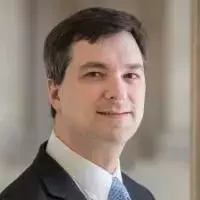



A New Era of Fiscal Responsibility Awaits
The reform agenda proposed by Musk and Ramaswamy promises a seismic shift in how the federal government operates, aiming to restore fiscal discipline and eliminate inefficiencies that have long plagued public spending.
Rethinking Federal Regulations and Spending
Musk and Ramaswamy advocate for a sweeping overhaul of federal regulations and expenditures. They argue that recent court rulings empower them to reverse what they perceive as overreach by previous administrations. By collaborating with the Office of Management and Budget (OMB), DOGE seeks to rescind unnecessary regulations and cut costs across agencies. This approach reflects a belief that the current regulatory framework stifles innovation and economic growth. The duo also plans to reduce the federal workforce, bypassing traditional civil service protections and mandating in-person work despite union resistance. Relocating agencies outside Washington, D.C., is another key component of their strategy, aimed at decentralizing power and reducing operational costs.
However, this aggressive reform agenda has sparked controversy. Critics argue that such drastic measures could disrupt essential services and undermine the integrity of federal institutions. Legal experts are particularly skeptical about the viability of sidestepping the 1974 Impoundment Control Act, which prevents presidents from withholding congressionally approved funds. Despite the conservative majority on the Supreme Court, many believe the judiciary will uphold the separation of powers and reject attempts to circumvent established budgetary procedures.
The Future of Veterans’ Healthcare
Veterans' healthcare is one area where the DOGE's proposals have raised concerns. Ramaswamy has called for defunding expired government programs, including the Veterans’ Health Care Eligibility Reform Act of 1996, which continues to receive funding despite expiring in 1998. This program, costing $119 billion annually, provides medical benefits to veterans. The suggestion to terminate it has drawn criticism from policy analysts like Brian Riedl, who argues that Ramaswamy may not fully understand the implications of his proposal. Eliminating this program could have severe political repercussions for the Republican Party, given the importance of veterans' healthcare to many voters.
Experts also question whether Ramaswamy and Musk have adequately considered the complexities of veterans' healthcare. The ongoing authorization of this program through discretionary funding highlights the need for careful deliberation before making any changes. The potential fallout from disrupting veterans' access to medical care underscores the importance of balancing fiscal responsibility with the well-being of those who have served the country.
Medicaid Under Scrutiny
Medicaid, a critical safety net for millions of Americans, is also on the radar for potential cuts. With a federal budget of $6.75 trillion, discretionary funding accounts for $1.7 trillion, leaving entitlement programs like Medicaid vulnerable to reform. Ramaswamy has suggested targeting waste and fraud within Medicaid, as well as reducing duplicative payments for individuals enrolled in both Medicare Advantage and veterans' healthcare. While some Republicans express openness to reform, others remain cautious about altering programs that provide essential support to low-income individuals and families.
Cuts to Medicaid could be implemented through reconciliation packages, requiring only a simple majority in Congress. This approach could lead to significant changes, such as reintroducing work requirements for state Medicaid programs. Such policies would likely vary by state, with more conservative states implementing stricter eligibility criteria. Additionally, there may be a return to models like the Healthy Adult Opportunity Initiative, which converts Medicaid funding into block grants for adults under 65. These reforms aim to control costs but risk reducing access to healthcare for vulnerable populations.
Implications for Healthcare Access and Innovation
If Medicaid and other entitlement programs face cuts, the impact on healthcare access could be profound. The expiration of enhanced premium tax credits under the Affordable Care Act could leave millions without insurance coverage, driving up premiums and out-of-pocket costs. However, proponents argue that these reforms could enhance the long-term sustainability of healthcare programs and encourage innovative market solutions. For instance, Sen. Lisa Murkowski supports extending subsidies to mitigate the effects of potential cuts. Balancing fiscal responsibility with equitable healthcare access remains a central challenge for policymakers.
The debate surrounding these reforms highlights the complex interplay between fiscal conservatism and social welfare. As Musk and Ramaswamy push for transformative changes, the outcome will depend on navigating legal, political, and public opinion. The coming months will reveal whether their vision for a leaner, more efficient government can withstand scrutiny and deliver meaningful improvements to the federal budget and healthcare system.
